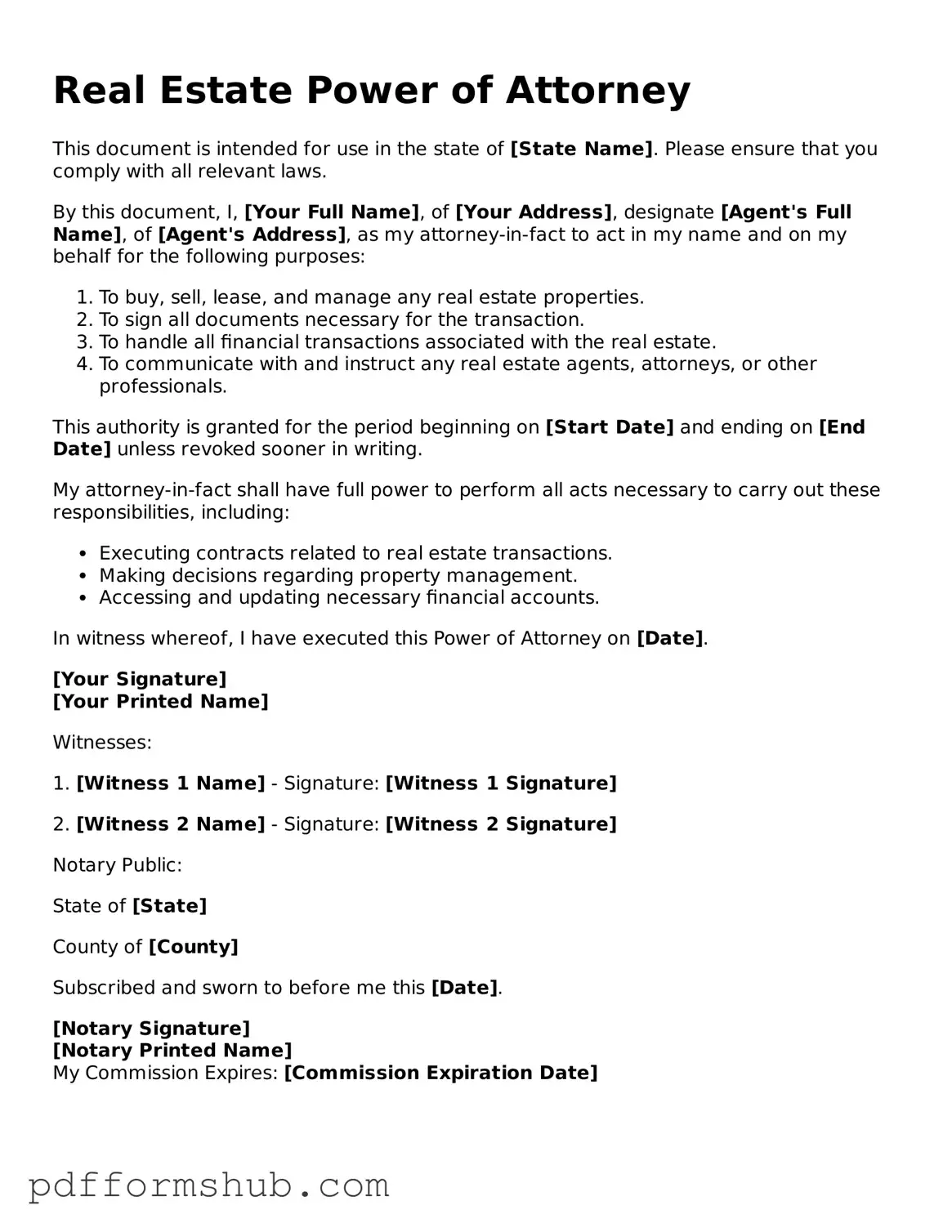Valid Real Estate Power of Attorney Form
A Real Estate Power of Attorney form allows an individual to designate someone else to handle real estate transactions on their behalf. This legal document is essential for those who may be unable to manage their property due to various reasons, such as being out of town or facing health issues. Understanding how to fill out this form can simplify the process of buying, selling, or managing real estate.
Ready to take the next step? Fill out the form by clicking the button below.
Customize Form

Valid Real Estate Power of Attorney Form
Customize Form

Customize Form
or
Free PDF Form
Short deadline? Complete this form now
Complete Real Estate Power of Attorney online without printing hassles.